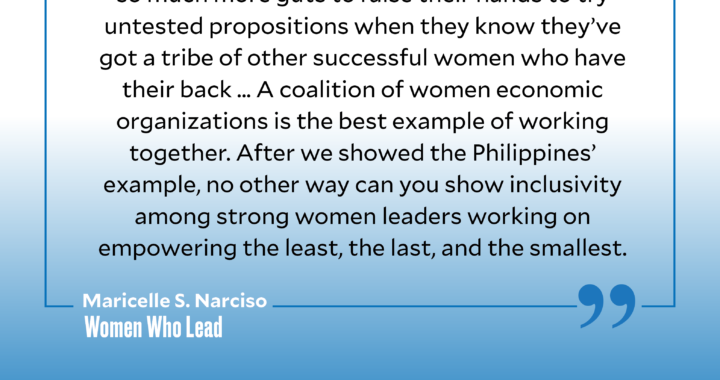Looking for an alternative career? Eager to approach retirement? One usually asks these questions as we reflect upon the New Year and what it will bring. Not a few people have asked me: What do I do when I reach retirement age? My reply: You have to keep yourself busy. One of the ways to be busy but not doing the usual 9-to-5 grind is to be a board director. The next question is: But I have no idea about finance or risk management. Well, being a director does not mean you have to be a finance whiz or an audit expert. Directors have to be from varied backgrounds and preferably have had experience in a field which the rest of the Board may not have.
Myth: Directors of Boards have to be old and senior.
Fact: Boards now also look for younger people who may have expertise in technology or media to be able to contribute new thinking to an otherwise old Board.
Myth: You need to be a good auditor.
Fact: Boards prefer to have experts in every field relevant to the business, such as the usual fields like Marketing and Audit, and the new fields like ChatGPT, Artificial Intelligence (AI) or even Cryptocurrency.
Myth: Only men are allowed in Boards.
Fact: Publicly listed company Boards are now made up of 17% women. There even is a global group and institute for Women Corporate Directors (www.womeninboards.com) and a local chapter called NOWCD or NextGen Organization of Women Corporate Directors.
Diversity of members is very much encouraged in Board compositions, not just because global studies show diversity as being one of the secrets to profitability, but also to avoid the danger of groupthink or producing “yes-men” or “yes-women” who rubberstamp a family patriarch’s wishes vs what is good for the company’s sustainability plans. The first diversity marker, on many occasions, is gender diversity. Boards used to be composed of an all-male team in black suits, who served as well-paid directors until they croaked or left only to move to another Board directorship. Yes, this is a job or career path for ex-CEOs, ex-COOs, and ex-government officials because names must be impressive in an annual report.
But the younger set should also investigate training for a Board Director seat. Usually, heirs-apparent are given training by their parents by seating them in company Boards. They listen and learn and soon may take over leadership of the company or conglomerate. What if you were not born with the proverbial silver spoon? No worries. You can hone your skills in a field that is relatively new, as there is a big chance that old male directors have no time to study the ever-changing sector called Digital Technology and the Industrial Revolution 4.0.
Firms who are borrowers of foreign banks and lending institutions, and companies with international joint venture partners also look for a Balanced Scorecard, Environmental, Social and Governance (ESG) as qualities, and will actually require a Board that is diverse in gender, age, and experience. This is an opportunity for younger officers and corporate people to raise their profiles in Linked In, for example, so they can be discovered by headhunters and those looking to refresh their corporate Boards.
When I was asked to serve in a non-profit some 15 years ago, I learned from them as they also learned from my humble experience as an entrepreneur. Sometimes, non-profits have to look at sustainability through an entrepreneur’s eyes and not through a donee’s perspective alone. It also helps to serve in non-profit organizations where you learn from more experienced co-directors who are humble enough to let you speak from your own career or history, and see how your sharing can help the organizations.
It also helps to serve in family boards as members can be more forgiving. Even while you are learning from each other’s mistakes (and sometimes it can cost the family a small fortune), you and the other directors might also miss the mark you have set for yourselves to reach. There can be opportunities lost, but serving as a director gives you a holistic approach to problem-solving and forward planning, even for small family corporations. The only secret is for the head of the family to be open-minded to suggestions and “out of the box” thinking.
I was fortunate to have served on a Board at the young age of 18, listening to how board meetings were conducted and per diems were given. As you learn the other theories in school, you add your practical experience and voila you now can speak up, suggest and train to be a more professional director.
I then enrolled in the Professional Directorship Program (PDP) of the Institute of Corporate Directors (www.icd.ph) where you learn from the masters of governance, and where you get exposed to professional corporate and independent directors. It also helps to attend conferences, such as those of the Global Institutes of the Women Corporate Directors (WCD) which were held in Singapore and Tokyo in pre-pandemic years. During the pandemic, workshops and conferences continued online, to the convenience of all who wanted to further hone their skills in being independent directors without the cost of travel.
Finally, learn to also serve in private boards and wear your independent hat as an astute expert in your field, or even just to give your “two cents” to solve what seems easy to you but seems like an insurmountable challenge to the others. You will be surprised at how exposure and experience (not just formal education) can help you come up with a creative solution to most issues.
Manifest and it will come. But make a conscious effort to open your career to other opportunities. Imagine all the wealth of information a manager like you has gathered over time. Your experience and knowledge can benefit other groups — non-profit, for profit, and even publicly listed companies. And let us change the image of the corporate director — they can be youthful, female, and progressive. Not just another sleepy guy in a black suit.
Chit U. Juan is a member of the MAP Committee on Diversity, Equity and Inclusion. She was AWEN chair from 2016-2018 and is now a PHILWEN trustee and member of AWEN’s Advisory Council. She is also first vice-president of the ASEAN Coffee Federation.
This article first appeared on bworldonline by Chit Juan.

